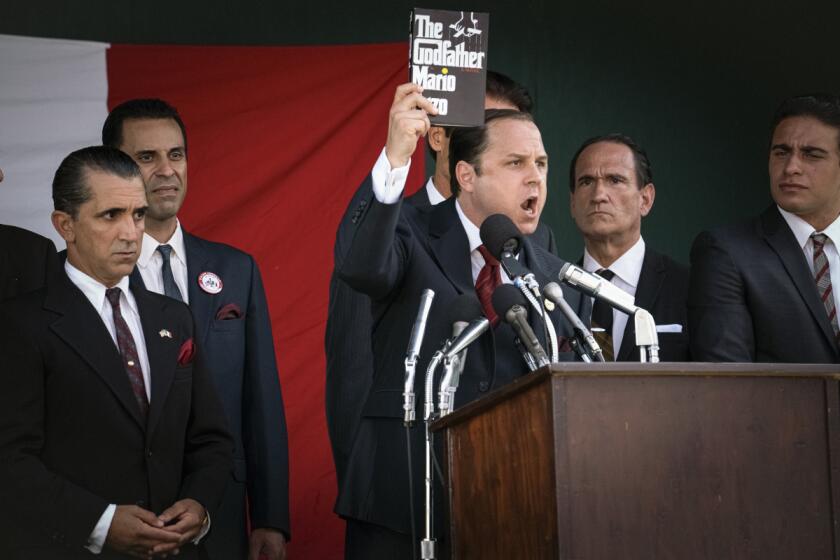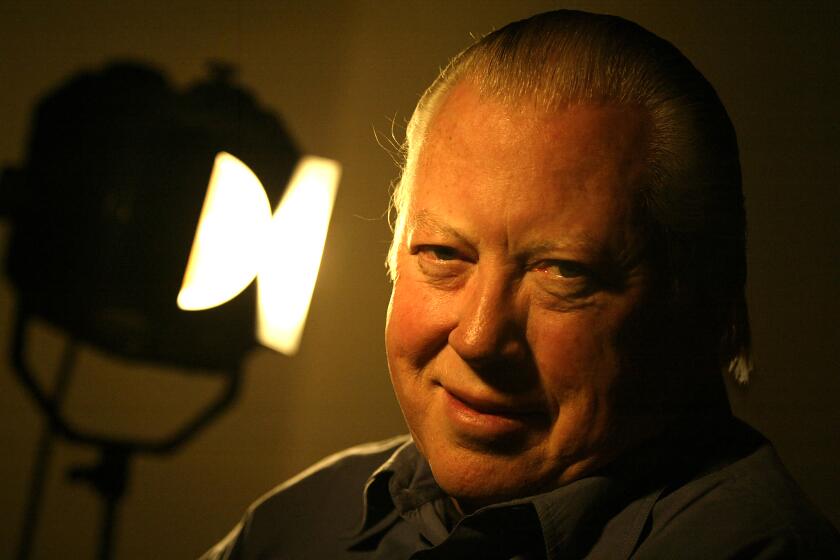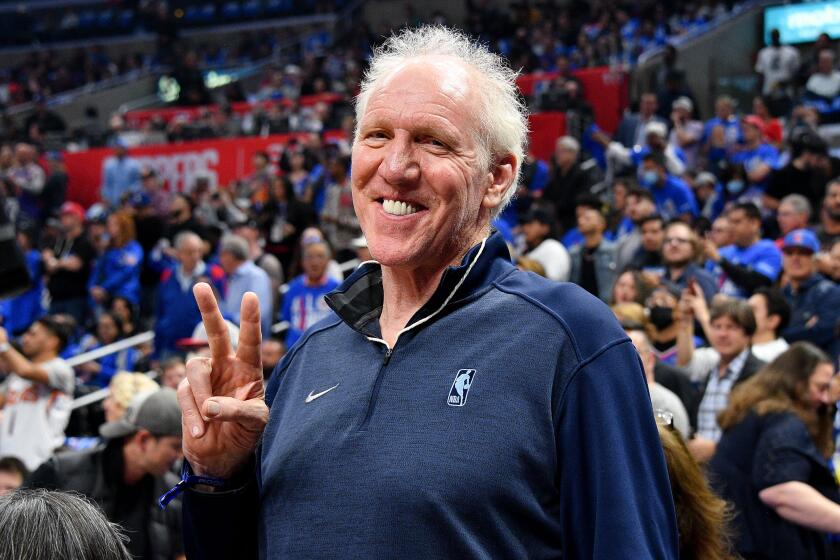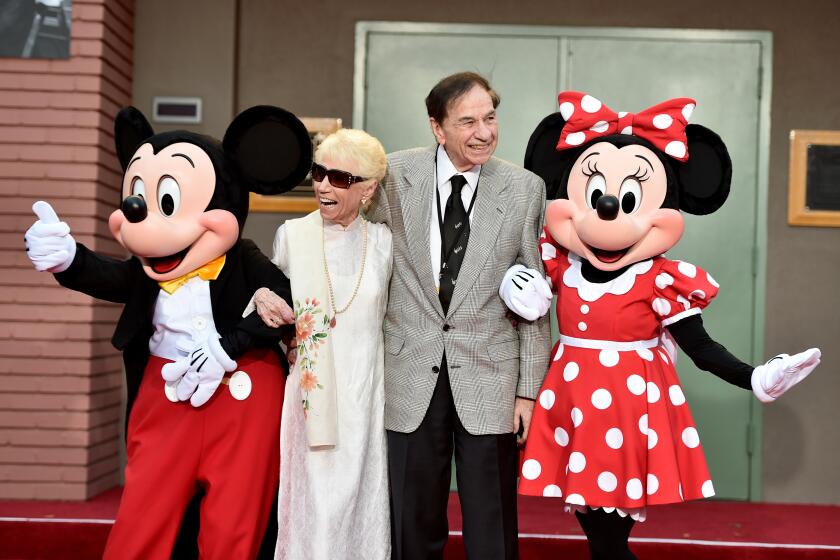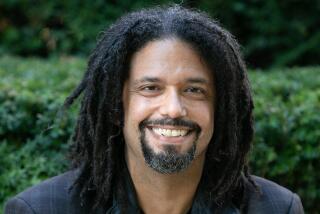Albert S. Ruddy, Oscar-winning producer of ‘The Godfather’ and ‘Million Dollar Baby,’ dies at 94

- Share via
NEW YORK — Albert S. Ruddy, a colorful Canadian-born producer and writer who won Oscars for “The Godfather” and “Million Dollar Baby,” developed the raucous prison-sports comedy “The Longest Yard” and helped create the hit sitcom “Hogan’s Heroes,” has died at age 94.
Ruddy died “peacefully” Saturday at UCLA Medical Center, according to a spokesperson, who added that among Ruddy’s final words were, “The game is over, but we won the game.”
Its broad strokes are right, but Paramount’s ‘The Offer’ tries to burnish its tale of the classic film’s making with fictions it mostly doesn’t need.
Tall and muscular, with a raspy voice and a city kid’s swagger, Ruddy produced more than 30 movies and was on hand for the very top and very bottom, from “The Godfather” and “Million Dollar Baby” to “Cannonball Run II” and “Megaforce,” nominees for Golden Raspberry awards for worst film of the year.
Otherwise, he had a mix of successes, including “The Longest Yard,” which he produced and created the story for, and flops such as the Arnold Schwarzenegger thriller “Sabotage.” Ruddy worked often with Burt Reynolds, starting with “The Longest Yard” and continuing with two “Cannonball Run” comedies and “Cloud Nine.” Besides “Hogan’s Heroes,” his television credits include the movies “Married to a Stranger” and “Running Mates.”
Nothing looks better on your résumé than “The Godfather,” but producing it endangered Ruddy’s job, reputation and his very life. Frank Sinatra and other Italian Americans were infuriated by the project, which they feared would harden stereotypes of Italians as criminals, and real-life mobsters let Ruddy know that he was being watched. One night he heard gunfire outside his home and the sound of his car’s windows being shot out.
On his dashboard was a warning that he should close the production, immediately.
Fred Roos, the Oscar-winning producer of “The Godfather Part II” who helped launch the careers of numerous superstars including Jack Nicholson, Diane Keaton, Harrison Ford and Tom Cruise, has died.
Ruddy saved himself, and the film, through diplomacy; he met with crime boss Joseph Colombo and a couple of henchmen to discuss the script.
“Joe sits opposite me, one guy’s on the couch, and one guy’s sitting in the window,” Ruddy told Vanity Fair in 2009. “He puts on his little Ben Franklin glasses, looks at it (the script) for about two minutes. ‘What does this mean, “fade in?”’ he asked.”
Ruddy agreed to remove a single, gratuitous use of the word “Mafia” and to make a donation to the Italian American Civil Rights League. Colombo was so pleased that he urged Ruddy to appear with him at a news conference announcing his approval of the movie, a gathering that led to Ruddy’s being photographed alongside members of organized crime.
With the stock of parent company Gulf + Western dropping fast, Paramount fired Ruddy, only to have director Francis Ford Coppola object and get him rehired. In the end, mobsters were cast as extras and openly consulted with cast members. Ruddy himself made a cameo as a Hollywood studio guard.
Despite achieving notoriety as a basketball player and as a broadcaster, Bill Walton embraced unconventional definitions of personal success.
“It was like one happy family,” Ruddy told Vanity Fair. “All these guys loved the underworld characters, and obviously the underworld guys loved Hollywood.”
With a cast including Marlon Brando, Al Pacino and Robert Duvall, “The Godfather” was a critical and commercial sensation and remains among the most beloved and quoted movies in history. When the film was named winner of the best picture Oscar — with Ruddy as its producer — at the 1973 ceremony, the presenter was Clint Eastwood, with whom Ruddy would produce 2004’s “Million Dollar Baby,” also a best picture winner.
Upon the 50th anniversary of “The Godfather,” in 2022, Ruddy himself became a character. Miles Teller played him in “The Offer,” a Paramount+ miniseries about the making of the movie, based on Ruddy’s experiences.
“Al Ruddy was absolutely beautiful to me the whole time on ‘The Godfather’; even when they didn’t want me, he wanted me,” Pacino said in a statement. “He gave me the gift of encouragement when I needed it most and I’ll never forget it.”
Ruddy was married to Wanda McDaniel, a sales executive and liaison for Giorgio Armani who helped make the brand omnipresent in Hollywood, whether in movies or at promotional events. They had two children.
Sherman and brother Robert were the masterminds behind Disney songs for the film “Mary Poppins” and “It’s a Small World.” They also wrote songs for Disney TV shows and movies.
Born in Montreal in 1930, Albert Stotland Ruddy moved to the U.S. as a child and was raised in New York City. After graduating from USC, he was working as an architect when he met TV actor Bernard Fein in the early 1960s. Ruddy had tired of his career, and he and Fein decided to develop a TV series, even though neither had done any writing.
Their original idea was a comedy set in an American prison, but they soon changed their minds.
“We read in the paper that ... (a) network was doing a sitcom set in an Italian prisoner of war camp and we thought, ‘Perfect,’” Ruddy later said. “We rewrote our script and set it in a German POW camp in about two days.”
Starring Bob Crane as the wily Col. Hogan, “Hogan’s Heroes” ran from 1965 to 1971 on CBS but was criticized for trivializing World War II and turning the Nazis into lovable cartoons. Ruddy remembered network head William Paley calling the show’s concept “reprehensible” but softening after Ruddy “literally acted out an episode,” complete with barking dogs and other sound effects.
John Henry Carpenter, 70, who was acquitted of charges that he killed “Hogan’s Heroes” star Bob Crane.
While Fein continued with “Hogan’s Heroes,” Ruddy turned to film, overseeing the low-budget “Wild Seed” for Brando’s production company. His reputation for managing costs proved most useful when Paramount Pictures head Robert Evans acquired rights to Mario Puzo’s bestselling novel “The Godfather” and sought a producer for what was supposed to be a minor, profit-making gangster film.
“I got a call on a Sunday. ‘Do you want to do ‘The Godfather?’” Ruddy told Vanity Fair. “I thought they were kidding me, right? I said, ‘Yes, of course, I love that book’ — which I had never read.”
Italie writes for the Associated Press.
More to Read
Only good movies
Get the Indie Focus newsletter, Mark Olsen's weekly guide to the world of cinema.
You may occasionally receive promotional content from the Los Angeles Times.
